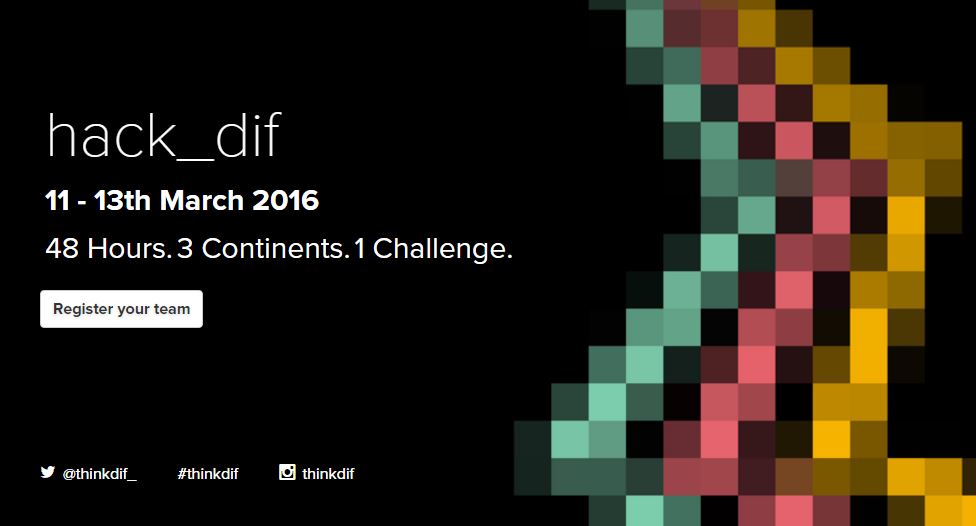Make smart connected products better for our future circular economy
10/02/2016

Do you have ideas to help make the things we use work better for us and help the environment? Could you make them a reality with the help of an international team located on three continents in just 2 days? This is the task we’re setting ourselves at hack_dif on 11-13 March 2016.
With support of the Ellen MacArthur Foundation, Cisco and Philips, we will be setting up for a hackathon weekend at Cranfield University, and working remotely with innovative collaborators at MIT in Massachusetts in the United States, and at the National Institute of Design in Gujarat in India. After just 48-hours we will be presenting workable solutions, which could contribute to a circular economy (one that makes the most of our resources rather than squandering them). And, you can be a part of this epic challenge too – as long as you can join us in person in the UK, USA or India! (If you want to take part – register online here).
Teams made up of hackers, thinkers, doers, designers, pragmatists, visionaries, tech-heads and creatives will come together to consider the future of ‘connected products’. This simply means any ‘smart’ technology like smart TVs or other home appliances that connect to the internet. It isn’t just consumer goods like toasters and fridges; it might also be a whole company’s production line or air conditioning.
The market for smart and connected products is worth millions worldwide. As we become more used to the benefits of connecting everything to the web, the sector is expected to grow. But are these millions of products destined to end up in landfill? We already know electronics contain expensive components and metals in their circuitry, and that landfill waste has the potential to pollute land for decades to come.
So, at hack_dif we’re going to find a solution. We’re asking the best minds to come together and consider whether we could use the same smart capabilities of these products to extend their useful life – for example through preventative maintenance or remote repair. Teams might also consider how we use technology to ensure products are used in the best way – reducing wear on certain parts for example to prevent single point failures, or a ‘sharing economy’ that allows users access to a product when they need it rather than gathering dust. And, solutions might also consider what happens when a product really is at the end of the line. How does a product get back to a manufacturer to be recycled or remanufactured? All of these considerations could help us get closer to a circular economy model.
What will we come up with? Who knows! We’ll share the process and the products on this blog after the hackathon is complete.
Categories & Tags:
Leave a comment on this post:
You might also like…
From classroom to cockpit: What’s next after Cranfield
The Air Transport Management MSc isn’t just about learning theory — it’s about preparing for a career in the aviation industry. Adit shares his dream job, insights from classmates, and advice for prospective students. ...
Setting up a shared group folder in a reference manager
Many of our students are now busy working on their group projects. One easy way to share references amongst a group is to set up group folders in a reference manager like Mendeley or Zotero. ...
Company codes – CUSIP, SEDOL, ISIN…. What do they mean and how can you use them in our Library resources?
As you use our many finance resources, you will probably notice unique company identifiers which may be codes or symbols. It is worth spending some time getting to know what these are and which resources ...
Supporting careers in defence through specialist education
As a materials engineer by background, I have always been drawn to fields where technical expertise directly shapes real‑world outcomes. Few sectors exemplify this better than defence. Engineering careers in defence sit at the ...
What being a woman in STEM means to me
STEM is both a way of thinking and a practical toolkit. It sharpens reasoning and equips us to turn ideas into solutions with measurable impact. For me, STEM has never been only about acquiring ...
A woman’s experience in environmental science within defence
When I stepped into the gates of the Defence Academy it was the 30th September 2019. I did not know at the time that this would be the beginning of a long journey as ...






